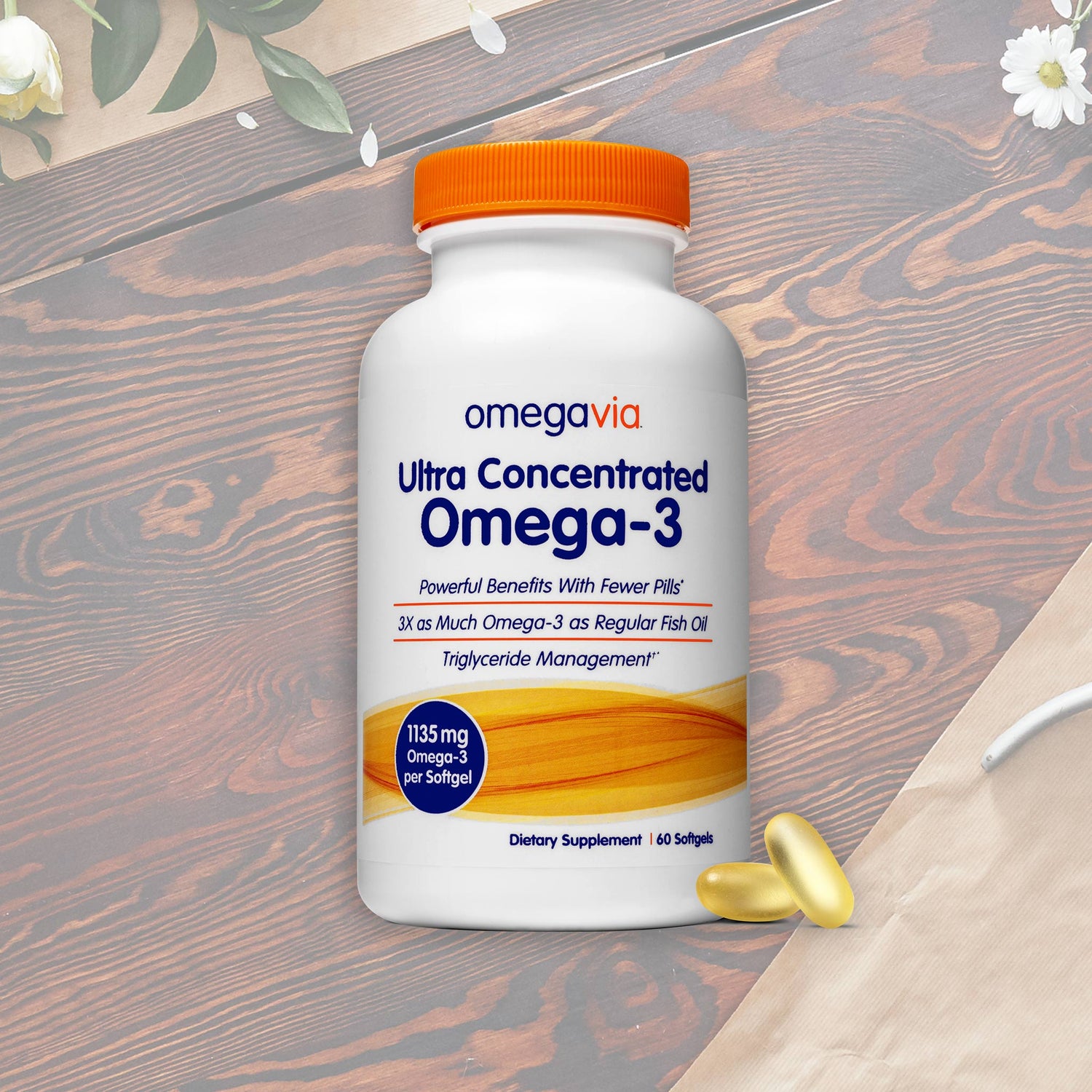It's easy to think you're doing something good for your high triglycerides. Well, until you dig a little deeper.
Uncle Sid visited me over the Holidays. Anyone who visits our family knows that sooner or later, the talk turns to health, nutrition and pills. At least it is more genuine that talking about the weather as a means to avoid arguing about politics! Uncle Sid has high blood pressure, high cholesterol and high triglycerides. His triglycerides were almost 1500. Yikes! He takes a bunch of prescription medications for each. So I asked him what he took for his high triglycerides. He said Niaspan.Niaspan & High Triglycerides
Niaspan is Niacin, a type of B-vitamin. It may be in your multivitamin. Except, Niaspan is a very high dose of Niacin. There are two major drawbacks with Niaspan.- It causes skin flushing in many people - a kind of burning, itching, and tingling feeling. Some people can’t tolerate it and others, like Uncle Sid, seem to do OK.
- Niacin can harm your liver.
Flaxseed Oil is Almost Worthless for High Triglycerides
“I take 2000 mg of Flax oil,” he said proudly. He's a vegetarian and doesn’t eat fish, so fish oil or Lovaza were not options for him.* "Flax has plenty of Omega-3, right? And it's vegetarian. So it's perfect!"
Oh boy!
So we did some digging and found that his Flaxseed oil contains 50% ALA Omega-3 (Alpha-Linolenic Acid). ALA is the Omega-3 found in plants and seeds.
Your body cannot use Omega-3 from Flax. ALA is not absorbed directly. Your body has to convert ALA into several other intermediates first and then finally into EPA and DHA Omega-3. EPA and DHA are the Omega-3s found in fish oil.
Unfortunately, only about 5% or less of the ALA gets converted to EPA. And none of it gets converted to DHA. The science behind the conversion numbers is solid and proven several times.
Uncle Sid is an aeronautical engineer who designs 'secret stuff' for the US Air Force and Navy. So he did the math in his head pretty quickly.
“So you’re telling me that 2000 mg of Flaxseed produces just 50 mg of EPA Omega-3?”
“Yes,” I replied apologetically.
“So I’d have to take 20 Flaxseed oil pills to equal the Omega-3 in just one of your fish oil pills?!”
“Yes again. You need about 3000 mg of EPA and DHA Omega-3 combined with a healthy diet and exercise every day to reduce your triglycerides significantly.”
He was lightning fast with his math again. “Well, heck, that’s 40 to 60 Flaxseed oil pills every day! That’s INSANE!”
It is insane to try to reduce triglycerides with Flaxseed oil. No one should attempt it!
"Flax has plenty of Omega-3, right? And it's vegetarian. So it's perfect!"
Oh boy!
So we did some digging and found that his Flaxseed oil contains 50% ALA Omega-3 (Alpha-Linolenic Acid). ALA is the Omega-3 found in plants and seeds.
Your body cannot use Omega-3 from Flax. ALA is not absorbed directly. Your body has to convert ALA into several other intermediates first and then finally into EPA and DHA Omega-3. EPA and DHA are the Omega-3s found in fish oil.
Unfortunately, only about 5% or less of the ALA gets converted to EPA. And none of it gets converted to DHA. The science behind the conversion numbers is solid and proven several times.
Uncle Sid is an aeronautical engineer who designs 'secret stuff' for the US Air Force and Navy. So he did the math in his head pretty quickly.
“So you’re telling me that 2000 mg of Flaxseed produces just 50 mg of EPA Omega-3?”
“Yes,” I replied apologetically.
“So I’d have to take 20 Flaxseed oil pills to equal the Omega-3 in just one of your fish oil pills?!”
“Yes again. You need about 3000 mg of EPA and DHA Omega-3 combined with a healthy diet and exercise every day to reduce your triglycerides significantly.”
He was lightning fast with his math again. “Well, heck, that’s 40 to 60 Flaxseed oil pills every day! That’s INSANE!”
It is insane to try to reduce triglycerides with Flaxseed oil. No one should attempt it!
Algae Oil To The Rescue
If you’re a vegetarian like Uncle Sid, your best bet is to eat algae-derived DHA. Fish get their Omega-3 from eating ocean algae. There are some companies that grow these algae in large vats and extract the Omega-3 directly from the algae. It’s a fascinating technology. And it produces excellent quality, pure DHA oils. Currently, algae oil contains DHA only. Unlike fish oil, it has little or no EPA Omega-3.Algae-DHA, the Vegetarian's Option for High Triglycerides?
We don’t yet have reliable technology to make inexpensive EPA from algae. Until then, it’s algae DHA, diet, and exercise for him.* Or, may be I should suggest that he cut out donuts and orange juice that he has every morning for breakfast. It'd certainly be more effective than taking 200 mg DHA pills. But that’s a discussion that will have to wait until he comes over next year for Thanksgiving. Or may be we'll just talk about the weather so the rest of the family isn't annoyed.*Clinical research suggests the omega-3 dosage needed to help maintain healthy triglycerides is 2000-3000 mg per day when used as part of healthy diet and exercise regimen. These statements have not been evaluated by the Food and Drug Administration. This product is not intended to diagnose, treat, cure, or prevent any disease.



